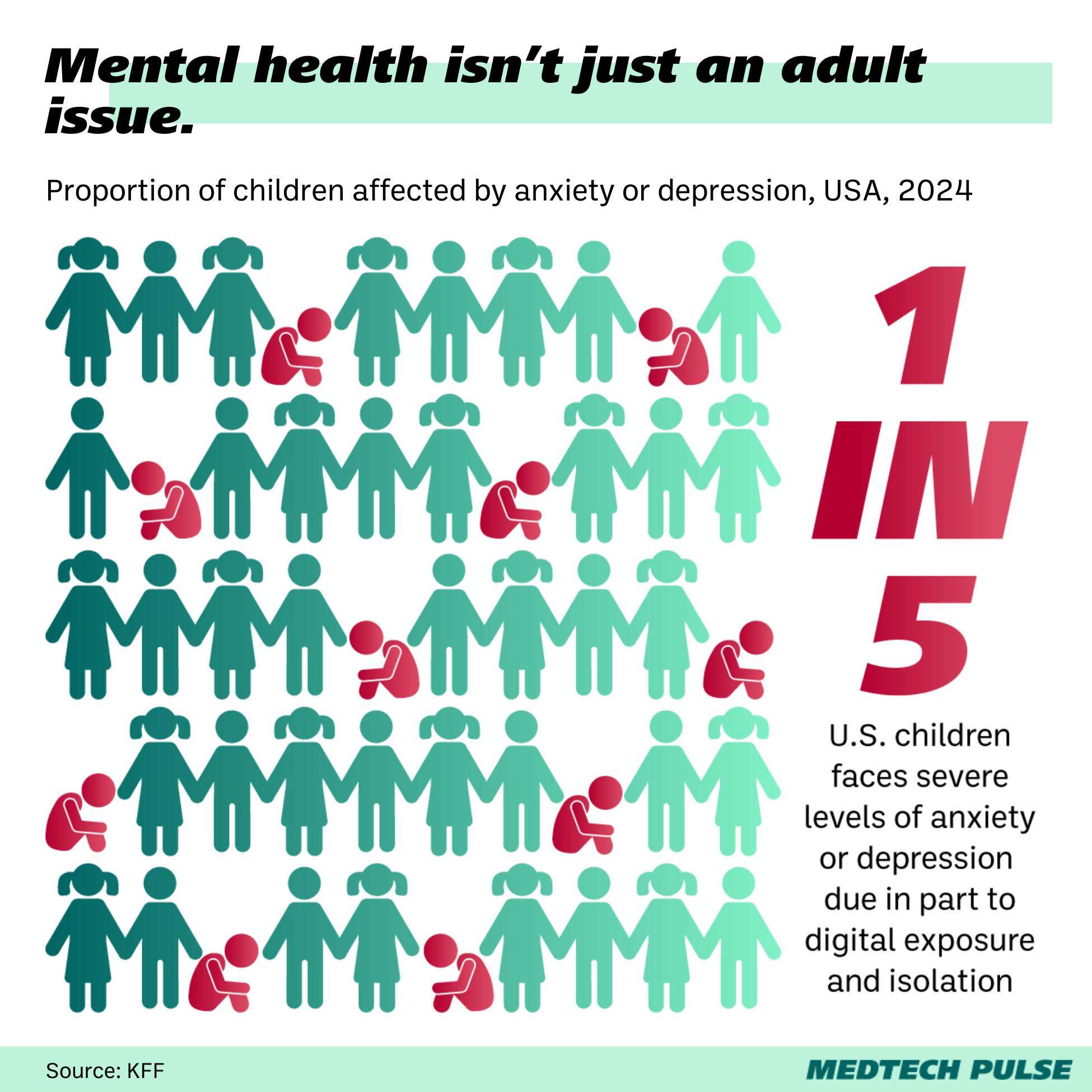This mental health chatbot is built specifically for children
Child-friendly phones with digital guardrails can be a godsend for parents hoping to balance allowing their children to connect online while keeping them safe. That’s why the Troomi Phone exists.
But Troomi has taken a step forward in promoting kids’ digital wellness. They offer a built-in wellness chatbot which, like the devices themselves, is built just for kids.
The story: Late last year, Troomi launched Troodi, a native AI-powered mental health ‘companion’ for its young users. Now, parents and children are using the chatbot to work on their mental health in various ways.
- Adolescent users turn to the chatbot to ask questions and vent. The chatbot responds with advice and relevant check-ins while also monitoring the conversations for red flags to report to parents.
- Troodi presents an additional tool in Troomi’s promise: helping parents limit the negative mental health effects of digital exposure and excessive screen time while not taking away phones and online connection altogether.
Children’s mental welfare in the digital age: It seems that every week, we get a new headline about how mentally unwell today’s children are—and how the phones are to blame. These concerns aren’t unfounded.

- Troomi, as a trusted brand in the digital space for parents and children, is especially concerned with helping parents more easily guide their children through the perils of excessive screen time, inappropriate content, cyberbullying, predatory relationships, and social media use.
- The Troodi chatbot allows children to come to these conversations on their own terms—without needing to confide in their parents directly. Digital tools—whether they’re supervised chatbots like Troodi or digital therapy games—help adults offer children support on their turf.
- Troomi parents interviewed by The Wall Street Journal expressed that they saw that the advice the chatbot gave to their kids was similar to what they would say. However, the advice coming from a friendly, neutral party helped kids digest it better.
Mental health chatbots’ mixed history: However, while the Troodi rollout has thus far been a success, the product is not without its detractors. This is largely due to predecessor chatbot products from other companies offering lackluster—or even dangerous—advice.
- Many of us remember when, two years ago, an eating disorder recovery nonprofit had to pull its chatbot after it gave users dieting advice.
- Just last month, parents sued the chatbot platform Character.AI, alleging that the platform had exposed their children to inappropriate content masquerading as a chatbot psychologist. The suit forms the basis of an appeal from the American Psychological Association to the Federal Trade Commission.
- This is why Troodi cannot replace parental intervention and professional counseling. Instead, it must be an intermediary, helping the adults in a child’s life better pick up on and prevent issues they might otherwise miss. Adult and professional supervision is still key.
- Mental health chatbots have floundered in the past when they’ve been branded as an alternative to psychological or psychiatric support. Instead, we must use them to bolster these important support systems—making them a bridge rather than a replacement. With such technology, we can offer children the better all-around support they deserve.